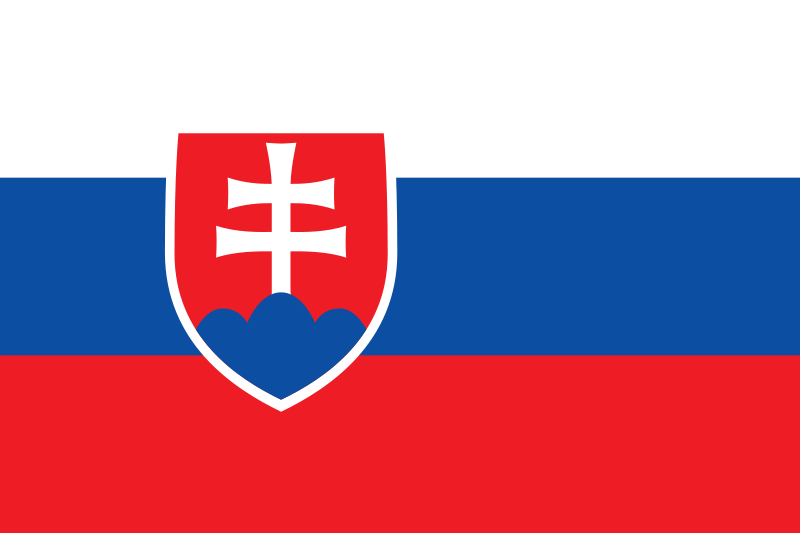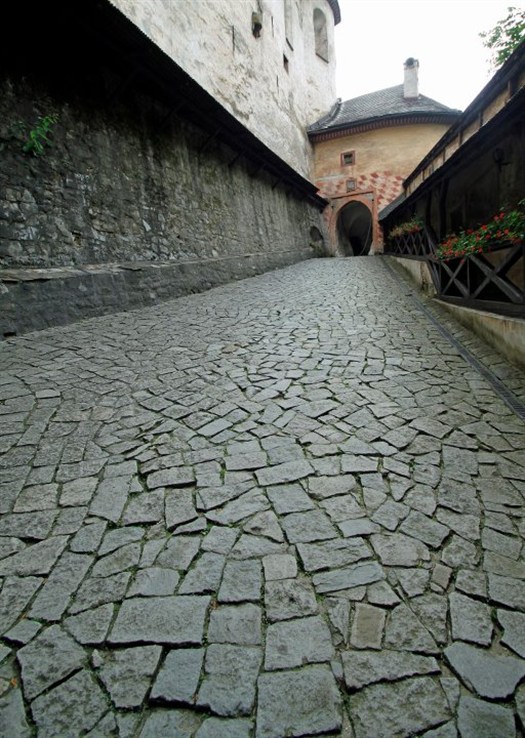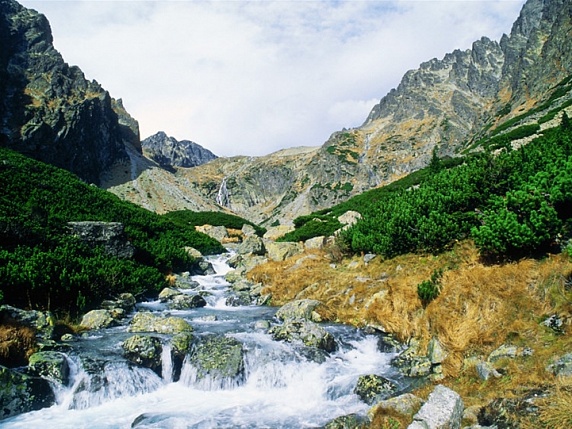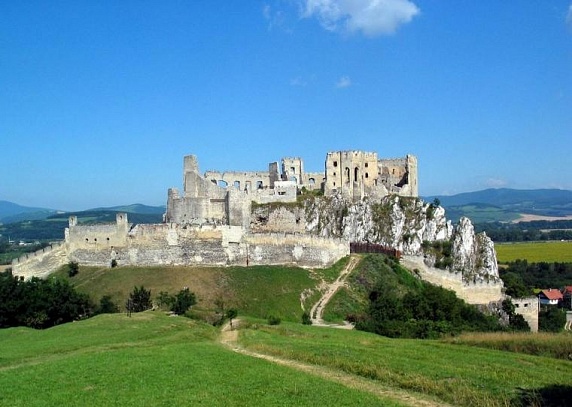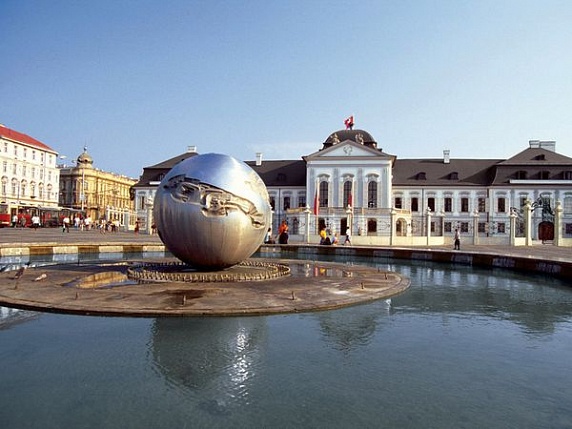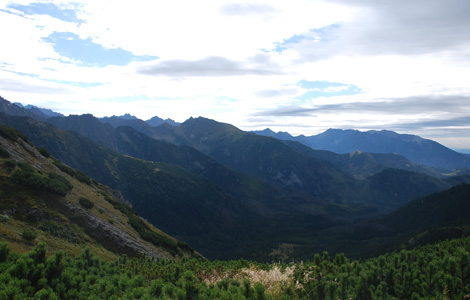 Словацкая Республика
Словацкая Республика
Foreign Minister Sergey Lavrov's remarks and answers to media questions at a joint news conference following the talks with Slovakia's Foreign and European Affairs Minister and OSCE Chairperson-in-Office Miroslav Lajcak, Moscow, February 19, 2019
Ladies and gentlemen,
I had substantive and useful talks with Slovakia’s Foreign Minister Miroslav Lajcak who arrived in Moscow as the OSCE Chairperson-in-Office.
The OSCE should actively facilitate the restoration of trust in the Euro-Atlantic area and the search for adequate answers to common challenges, and we are behind this. In this context, we support the consolidation of its unifying potential and enhancing its role in international affairs. We are convinced that “the building of a free, democratic, common and indivisible security community from Vancouver to Vladivostok” as set forth at the OSCE summit in Astana in 2010 should remain our common strategic goal.
We discussed in detail the main tasks in the three dimensions of OSCE activity and opportunities to streamline the functioning of its executive structures and field presence. We reviewed a number of OSCE administrative, budget and personnel issues.
For our part, we reaffirmed Russia’s interest in close cooperation with the current chairmanship in what are key areas for the OSCE, such as countering terrorism, drug trafficking and cyber threats, interconnecting integration processes, protecting traditional values, ensuring the rights of national minorities, primarily religious and language rights, fighting anti-Semitism, Christianophobia and Islamophobia and preventing manifestations of neo-Nazism. We supported Slovakia’s plans to conduct events on these and other issues this year.
Russia stands for the balanced and transparent character of the OSCE’s institutions for all of its members – the Office for Democratic Institutions and Human Rights, the High Commissioner on National Minorities, and the Representative for Freedom of the Media, as well as its missions and strict observance of established mandates.
We discussed in detail the situation in Ukraine, taking into account the role of the OSCE in facilitating the Minsk Package of Measures. There is no alternative to these measures for settling the Ukrainian crisis. Regrettably, the current Ukrainian authorities are stubbornly disrupting its implementation. We gave examples of this to our Slovakian colleagues. We rely on support from the current OSCE chairmanship to coordinate the work of the Contact Group and the OSCE Special Monitoring Mission (SMM) to Ukraine. We hope the SMM will keep its reports as objective as possible and will not conceal facts about which OSCE members and the rest of the international community should be aware to make the right assessment of the events in Ukraine.
We also discussed the OSCE’s role in settling the conflicts in Transnistria and Nagorny Karabakh. We spoke about the course of the Geneva discussions on security in the South Caucasus and the OSCE’s work in the Balkans, mainly in Kosovo.
We support Bratislava’s efforts to develop OSCE partnerships with other international organisations, including the CSTO, the EAEU, the CIS and the SCO.
Russia reaffirmed its willingness to continue implementing major projects within the OSCE framework, including the training of drug enforcement officers from Afghanistan and law enforcement officers from Serbia at its Ministry of the Interior training centres.
We also reviewed major bilateral issues. We welcomed the growth of trade and cooperation in energy and transport and the invigoration of inter-parliamentary, cultural and humanitarian ties between Russia and Slovakia.
We are grateful to the authorities and citizens of Slovakia for their traditional respect for the memory of Soviet soldiers who gave up their lives for the liberation of the nations of Europe from Nazism.
We discussed a number of key issues on the global agenda beyond the OSCE.
Once again, I would like to wish Slovakia's Foreign and European Affairs Minister and OSCE Chairperson-in-Office Miroslav Lajcak and his team a successful OSCE Chairmanship.
Question: Not long ago, OSCE Chairperson-in-Office and Minister of Foreign and European Affairs of Slovakia Miroslav Lajcak noted that he would use every opportunity created by positive impulses in his attempts to achieve a Nagorno-Karabakh settlement. Has any progress been made in this matter lately? How would you describe the current situation in the Karabakh process?
Sergey Lavrov: We are grateful to the OSCE Chairperson-in-Office for his stance. The Minsk Group co-chairs − Russia, the United States and France – are working in close contact. Their representatives have already met with the leaders of Armenia and Azerbaijan and their foreign ministers. More meetings are in the making.
Considering that the new Armenian government was only formed recently, understanding how intensively and deeply the settlement process can go at this point will take some time. The co-chairs and the OSCE can only help create proper environment for a dialogue. The decisions should be made during direct dialogue and direct talks between the parties.
Question: After CNN published its piece, Facebook blocked the RT-operated IntheNow project’s account allegedly for hiding its ties with Russia. However, even CNN is now saying that blocking the Facebook account is an unprecedented move. No other page has ever been blocked for that reason. Do you consider this situation in the context of pressure on Russian media and freedom of speech? Will Russia respond to this?
Sergey Lavrov: The fact that, at the behest of CNN (and CNN did so on a tip from the Marshall Foundation), Facebook blocked RT IntheNow project’s account is another example of pressure on the Russian media and freedom of speech which is regrettable.
We have discussed this situation. During the talks, I drew my colleague’s attention to it. We have cited other examples of RT and Sputnik coming under overt discrimination such as not being allowed to attend a series of official events in France. Recently, the British media regulator, Ofcom, came up with complaints about RT’s activities on a subject, which, if covered by anyone else from any other country, would have hardly attracted much attention from the regulators.
With regard to our response, frankly, I’m strongly against that when it comes to restricting media. I believe that the fact that we have not done so thus far is indicative of our restraint and strength. We are an open society. We have Ukrainian journalists working here, including some who are quite aggressive in their coverage of what’s happening in Russia and Russia-Ukraine and Russia-West relations. I would not recommend that the decision-makers come up with “an eye for an eye” response and limit journalists from other countries just because our journalists are being limited elsewhere.
We should focus on preserving comfortable working conditions for foreign reporters in Russia and strongly defending the rights of our media abroad using all institutions that are called on to ensure the freedom of journalists, their professional activities and access to information. Of course, we are talking about the OSCE and its special Representative on Freedom of the Media. These functions are currently performed by Harlem Desir, whom we tend to keep busy. He has many complaints that we have filed. He has responded to some. I hope that the rest will be acted on and not just in the form of a written response, but also through concrete steps that he can and must take in respect of the countries that violate freedom of the media.
Question: The Syrian Kurds have asked the European countries to establish an international force in the country’s northeast. At the same time, the US has announced that it does not support the Syrian government resuming control over this territory. What does Russia think of these positions?
Sergey Lavrov: As you know, a regular, fourth summit of the presidents of Russia, Turkey and Iran took place recently in Sochi. They discussed the settlement in Syria, including the situation in Idlib and in the country’s northeast in the context of the US decision to withdraw from Syria, as well as humanitarian and political issues.
The situation in the country’s northeast was created by the illegal presence of US forces in this area. Using the struggle against terrorism as a pretext, having struck an alliance with the main Kurdish groups and taken some combat action against ISIS, the US was really after establishing a quasi-state on the Eastern bank of the Euphrates River. Now the US is declaring that its main task is to prevent the Syrian government from returning to this area. The Americans are saying that they will support the Kurds even after leaving Iraq (hard to imagine how) but only until the Kurds start cooperating with the Syrian government and the Russian Federation. In other words, the task of restoring Syria’s sovereignty and territorial integrity that was approved by the entire UN community, including the US, was just a diversion manoeuvre for Washington.
It is becoming increasingly clear that the US’s goal is to split Syria and create a quasi-state on the eastern bank of the Euphrates River. It is already investing in this state, in part, by compelling its allies to pay for the infrastructure development of this part of Syria. Indicatively, the US is prohibiting its allies from investing to restore the infrastructure in the rest of Syria that is under the control of the legitimate government.
Meanwhile the situation should be determined not by the whims of the US that is there illegally and is trying to preserve its influence in Syria, and dictate to a sovereign state what to do with its territory, and ban the legitimate government from exercising full control over its territory even despite its announced withdrawal (we are convinced that it will positively affect the situation if this withdrawal is completed). This is a bit too much even for the current US authorities that have already created a certain reputation with their audacious attitude towards international law.
The agreement in Sochi, which relies on international law, includes the following. There is indeed a terrorist threat on the Syrian-Turkish border. It has existed for some time. In 1998 Syria and Turkey signed the Adana Agreement on the joint elimination of terrorist threats. It allows Turkish security and military forces to perform operations along the border on Syrian territory. Now that the US is withdrawing from Syria it is necessary to prevent these threats from looming over the northeast of Turkey as well as to make the Kurds return to the places of their traditional residence. The Americans brought the Kurds to Arab lands, thereby provoking a conflict between them and the Arabs, which never happened in this part of the country or in Syria as a whole.
All these issues were discussed, and the decisions were included in the 1998 Syria-Turkey agreement. Talks between the Syrian and Russian militaries and through us with the Turks will be devoted to the implementation of this agreement. I don’t think the US will be able to decide by itself who will ensure security in the so-called buffer zone. Statements to this effect have no legal grounds. I sincerely advise all those whom the US may wish to send there to think twice before taking yet another illegal action.
Question (to both ministers): Today, our colleague Kirill Vyshinsky is celebrating his birthday at a pre-trial detention facility in Ukraine, where he was placed under a contrived pretext. OSCE Representative on Freedom of the Media Harlem Desir has urged Kiev to release the journalist several times. Do you think Kiev will agree to that? What kind of leverage does the OSCE have to change Ukraine’s stance on this issue?
Sergey Lavrov (after Miroslav Lajcak): In my turn, I would like to send Kirill Vyshinsky birthday greetings. He is turning 52 – he is now practically in his prime. I would like to wish him good health and strength and to say that he should keep his spirit up.
We will keep monitoring this issue, taking all the necessary measures and supporting the efforts of the OSCE that Mr Lajcak just mentioned. We will keep on working to resolve yet another outrageous display of utter disrespect to the profession of a journalist.
When people are charged with high treason for their professional activities as journalists – which is not a forbidden profession, by the way – it is just too much. The truth is, one can expect anything from the current Ukrainian leadership. Viktor Medvedchuk, by the way, was also charged with high treason for simply calling for compliance with the Minsk Agreements. I believe that objective observers see the essence of the current Kiev regime quite clearly.
We will continue to stand firmly behind Kirill Vyshinsky until we achieve a positive result.





